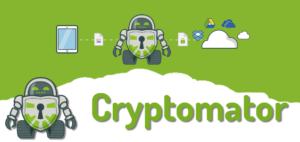


I'm not sure what the problem is have tried resetting PRAM & SMC several times with no luck. Sometimes it runs hotter than others, once it was almost too hot to touch. It doesn't happen every time, and seems random. There is nothing beyond promises to keep it that way, and promises are less binding than laws and national security letters.I'm running High Sierra, 10.13.3 and have recently noticed that it runs super HOT in sleep mode at times. The iCloud distinction is entirely arbitrary, which is why people are not satisfied with it. In the world without iCloud, they could make it scan any media that was sent across the network. Apple has currently linked it to whether you're pushing that data to iCloud, but that's an arbitrary distinction. The problem here is that this implementation really has nothing to do with cloud sync. This puts the control in the users hands (don't sync to cloud, pre-encrypt to shared cloud, or do some personal sync thing), while also setting a clear precedent of what is acceptable on users personal devices. Alternatively, people could run their own cloud sync instances (also already available in some forms). Those that want that additional security have recourse to get it. Systems or programs to encrypt locally before pushing up to a shared platform are possible and currently in use.
Sookasa app free#
If key escrow becomes established as a norm between cloud providers and law enforcement, then no free alternative will ever be possible. > The key escrow solution is strictly worse in any future. If you do not put data online in that situation, there is no way for them to process it without first exfiltrating it, which we already have laws and systems in place to hamper. The key escrow option is strictly worse than the current implementation, but it is also naturally constrained and the exposure is entirely user controlled.
Sookasa app full#
That's the difference between someone searching a large warehouse you and many others have stored belongings, and someone coming into your house and searching through your items freely as long as they're on the list.īeyond the difference in privacy that search entails fundamentally, people are very worried that the list itself is limited only by policy, and truly, the search of items on that list has full access to your private details but for the grace of those performing the search and controlling the list. One solution is limited to you actually pushing your data off your private device, the other is limited to a list of items you say you want to push off your device, but actually happens on your device. That's purely an implementation detail, and subject to change at any time.

> You get to choose whether to push your data to Apple and trigger the scanning with their solution too. We should discuss this as a societal tradeoff, as you note, but we should not ignore that this was spurred by a company running out in front of what was required of it and implementing this system which many see as at the expense of their users privacy. To abstract the implementation from the primary implementer is to obfuscate some of the cause and effect here. Right now the differences are essentially per-company, since we've let our experiences be controlled almost entirely by a small subset of companies. > discuss the government/citizen tradeoffs in that light. The author even notes they were opposed to Facebook's end-to-end encryption previously, I assume because as for defaults it sets a precedent and makes it unsearchable, but I'm not sure the specific tradeoffs they weigh and points they consider since it's behind a paywall (and I'm not sure I agree). Then you get to choose whether to push your data to the third party or not, given the risks involved. That is indeed what the article does, does it not? It makes the case that storing online with a decryption key that can be used with a search warrant is probably the right trade off, and the way other companies sometimes implement this.


 0 kommentar(er)
0 kommentar(er)
